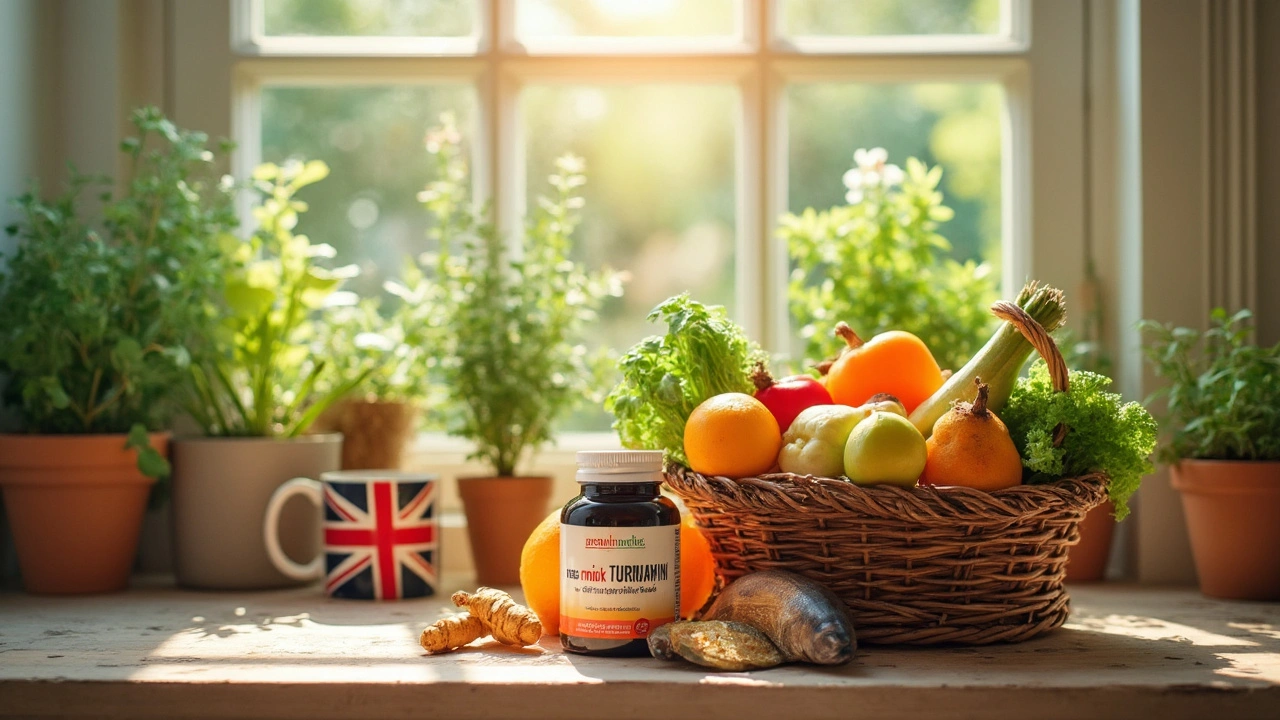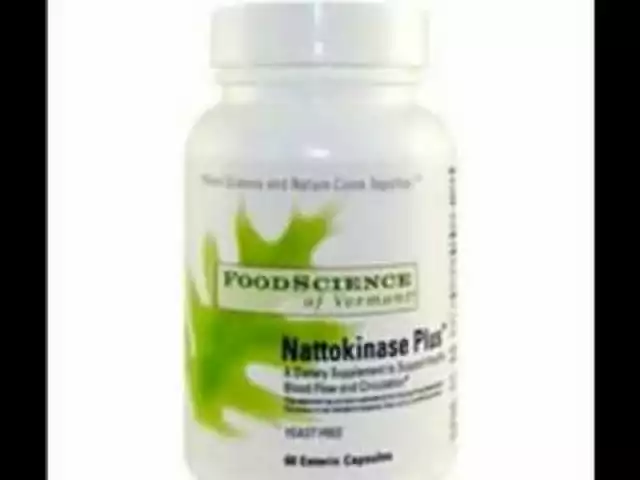The Real Story on Inflammation and Why Seeking Alternatives Matters
Hot joints, stubborn pain in your back, a knee that keeps swelling up after every hike—sound familiar? Inflammation isn’t just a buzzword; it’s the body’s frontline defense against injury or invaders. But when it sticks around too long, you get stuck with aches, auto-immune issues, and risks to your heart and brain. Steroids like dexamethasone are the big guns for fighting serious inflammation, but they’re not exactly gentle. You’ve probably heard of side effects like mood swings, sleep trouble, high blood sugar, even bone loss—just to name a few—and that’s just with short-term use. What about the rest of us who want to handle inflammation before it gets out of hand, or folks stuck with chronic problems? That’s where the world of natural anti-inflammatories gets interesting.
Let me be straight: not every plant in your grandma’s garden or bottle of fish oil at a drugstore delivers miracle results. But some, like curcumin, boswellia, and omega-3s, actually have the science to back up the hype. People have been using them for centuries, long before steroids or painkillers hit the shelves. Now, modern studies are catching up, putting these botanicals through their paces and revealing what really works. The idea isn’t to ditch your doctor, but to know your options—especially if you’re looking for ways to ease pain, speed recovery, or cut your dependence on meds with a laundry list of warnings.
Right here in Calgary, where winter sticks around for months and the sidewalks turn into ice rinks, I hear from folks every week about sore wrists, knees, or that classic ‘text neck.’ If you’ve ever felt trapped between stubborn pain and the side effects of pills, you’re not alone. That’s why more Canadians and people around the world are looking into safe, proven natural anti-inflammatories that don’t come with a pharmacy’s worth of caution labels. Ready to see which ones stand up to the hype?
Curcumin: Turmeric’s Golden Powerhouse
Ever wondered why curries from India have that striking yellow-orange color? You can thank curcumin for that. But this isn’t just some food coloring—it’s the superstar compound inside turmeric that has scientists and doctors buzzing. Ancient Ayurveda medicine has leaned on turmeric for everything from wound care to easing joint pain, but now, we’ve got studies to help us understand what curcumin actually does in your body.
Curcumin works by blocking several signals that trigger inflammation—one of the biggest being a molecule called NF-kB that fires up inflammation like flipping on a furnace. In 2023, a Canadian review in the journal Phytotherapy Research broke down dozens of human trials: they found curcumin reduced symptoms in people with arthritis, inflammatory bowel diseases, and even post-exercise soreness. Patients taking standardized curcumin extracts reported up to 60% less joint pain compared to placebo groups.
But here’s the catch: curcumin is a bit of a diva when it comes to absorption. Swallowing a spoonful of turmeric powder isn’t enough—you actually need to pair it with black pepper (which contains piperine) or get a formulated supplement that promises “enhanced bioavailability.” You’ll often see these advertised specifically for arthritis or post-surgery recovery. My buddy tried swapping out his basic turmeric pill for one with black pepper and within a few weeks, he noticed less swelling in his hands during the winter. If you want to test it, look for clinically tested blends and, especially, discuss with a doctor if you’re already taking blood thinners, since curcumin has a reputation for thinning the blood just a bit.
If you’re wondering whether you can just eat more curry, you’d need a whole lot of turmeric to reach the doses seen in studies (we’re talking several grams daily). That’s why most folks choose capsules or liquids. Some brands now combine curcumin with healthy fats or micellar technology to improve how much your body soaks up—worth checking if you want real results. For athletes and active people, small studies hint curcumin may speed up muscle recovery, meaning you bounce back faster after a tough game or a long trail run. It’s not an overnight magic fix, but the difference can be noticeable, especially with chronic aches.
Curcumin isn’t perfect. People with gallbladder disease or on certain medications should be cautious. But for many, it’s one of the safest and most reliable natural anti-inflammatories—backed by centuries of use and real clinical data. And for folks who can’t tolerate steroids or NSAIDs, it just might be a game changer.
Boswellia: The Ancient Resin Taking on Modern Inflammation
If you’ve never heard of boswellia, you’re not alone—most folks think of frankincense as something from a Christmas story, not a medical remedy. The resin from the Boswellia serrata tree, native to India and parts of Africa, has been used for ages in traditional healing. Its secret weapon is a group of compounds called boswellic acids, which tamp down an enzyme known as 5-LOX. This little enzyme is famous for kickstarting inflammation and the pain that comes with arthritis, asthma, and even digestive issues.
Robust clinical studies out of Germany, India, and the US during the past decade have shown boswellia’s power. In osteoarthritis trials, people taking standardized boswellia extracts reported up to 70% improvement in joint swelling and pain compared to baseline, often with effects starting in two weeks. What’s especially cool? Boswellia can reduce cartilage breakdown, acting almost like a shield for your joints. This gives it a unique edge over some regular painkillers, which might dull pain but don’t help protect what’s left of your cartilage.
The way it works is subtler than steroids. Instead of blasting the immune system, boswellia just quiets the overactive parts. Some research from 2022 showed it even helped with chronic inflammatory bowel conditions, like ulcerative colitis and Crohn’s, improving symptoms in up to 60% of patients who didn’t respond to the usual medications. For anyone struggling with irritable bowels or gut-based inflammation, that’s big news. There’s active research looking at boswellia for brain health and minor allergic reactions too.
The practical side: boswellia is usually taken as a capsule or tablet, with most clinical doses around 300–500 mg of standardized extract, often 2–3 times each day. Quality matters more than with some other herbs—cheap brands can cut corners and not include enough boswellic acids to see a benefit. No surprise, some low-end supplements have hardly any active ingredients. If you want the best results, look for products with transparent sourcing and at least 65% boswellic acids on the label.
Side effects? Compared to steroids or NSAIDs, boswellia is a breeze—mild stomach upset is the most common complaint, usually solved by taking it with food. Rarely, it may interact with meds for blood pressure or cholesterol, so run it past your pharmacist or doc. One unexpected bonus: it doesn’t appear to thin your blood. That can be a game-changer for older folks or anyone on anti-coagulant drugs.
If you’re a stats person, check this out:
| Condition | Response to Boswellia (%) |
|---|---|
| Osteoarthritis | 70% |
| Ulcerative colitis | 60% |
| Rheumatoid Arthritis | 58% |
Boswellia’s no magic resin, but for folks tired of relying only on steroids or painkillers, it’s got a real shot at making daily life feel a lot less stiff and sore.

Omega-3s: The Fishy Solution That Actually Works
Every time you see a big headline about ‘superfoods,’ salmon’s probably in it. That’s mostly because of omega-3 fatty acids—DHA and EPA in particular. These aren’t just trendy; they’re deeply studied for their anti-inflammatory effects. In fact, the science behind omega-3s is so solid that Canada’s own Heart and Stroke Foundation highlights them for keeping the cardiovascular system calm and resilient.
But here’s what most people don’t realize: omega-3s don’t just target heart health. They work by competing with a type of fatty acid in your body that stokes the fire of inflammation (arachidonic acid). When you have enough omega-3s in your system, your body starts producing fewer screaming-hot inflammatory signals (think prostaglandins and cytokines) and more calming, restorative molecules called resolvins. Over 20 large-scale double-blind studies have shown that regular omega-3 supplementation (natural anti-inflammatories-style) can ease symptoms of rheumatoid arthritis, reduce the need for NSAIDs, and even reduce the risk of inflammatory bowel flare-ups.
If you want to get technical, the average recommended daily dose for inflammation is about 2–3 grams (2,000–3,000 mg) of combined EPA and DHA. That usually means a couple capsules daily or a good serving of fatty fish like salmon, sardines, or mackerel at least three times a week. Some new vegan omega-3 supplements made from algae are picking up steam, and they actually contain the “real deal” EPA and DHA, unlike flaxseed or chia, which mostly offer ALA (not nearly as potent for lowering inflammation).
Tips for everyday use: if you’re new to omega-3s, go for certified pure brands that have tested for mercury and PCBs—especially important if you’re pregnant, nursing, or already take a lot of supplements. Try splitting the dose between morning and night for better absorption (and less chance of fish burps).
Omega-3s aren’t just for physical pain. Several studies out of the University of Toronto have linked higher omega-3 intake to lower depression levels (which often crisscross with chronic inflammation). And for people with asthma or eczema, omega-3s may help dial down flare-ups, making it easier to breathe or avoid scratching. Even kids with ADHD seem to benefit from supplementation, but always discuss dosing with a healthcare provider. Best of all, omega-3s are about as safe as it gets—though very high doses can thin the blood, so be careful if you’re on anti-coagulants or prepping for surgery.
If you want guidance on selecting products that work, some in-depth resources out there compare omega-3 capsules by purity, potency, and even taste. For deeper info on aligning these strategies with non-steroidal med options, check out this guide on natural alternatives to dexamethasone—it’s a helpful deep dive if you’re weighing the pros and cons of prescriptions versus natural approaches.
Botanical Heavyweights: Ginger, Quercetin, Pine Bark, and More
Let’s dig deeper than the usual suspects. Turns out, plants are loaded with molecules that calm inflammation, each with their own twist. Ginger’s zing comes from gingerols and shogaols, and research from the University of Alberta showed consistent daily ginger supplementation cut markers of inflammation (like CRP and TNF-alpha) by up to 30% in people with sore joints. Two teaspoons of grated ginger a day—fresh or in tea—can be enough for some people to feel a difference after a week or two. Bonus: it’s also good for digestion and easing nausea, so you’re killing two birds with one root.
Quercetin’s another plant star, mostly found in apples, onions, and capers. Studies out of Sweden and the US tracked how quercetin works directly inside immune cells, telling them to dial back the inflammatory overreaction. Athletes in these studies who supplemented quercetin (500–1,000 mg per day) reported faster muscle recovery and less soreness post-workout. Even allergy sufferers find relief thanks to quercetin’s anti-histamine effects. The best way to get it? Mix up your diet, but if you’re serious about the anti-inflammatory results, capsules tend to offer a reliable dose.
Pine bark extract (Pycnogenol) isn’t just a luxury beauty ingredient. Back in 2022, Italian researchers tested it in folks with knee osteoarthritis and found a 55% drop in swelling and pain, compared with only 15% in placebo. Pretty hefty impact for a tree most people walk by without thinking twice. Pycnogenol stabilizes blood vessels and blocks key inflammation triggers. It’s also been used for allergy season and for sharpening mental focus.
Let’s not forget resveratrol (the stuff making headlines in red wine) and green tea extract (high in EGCG). Both of these have proof in animal and human studies for lowering inflammation—resveratrol in helping blood vessels relax and EGCG in calming auto-immune responses. Just don’t go overboard: high doses of green tea extract can stress your liver, and resveratrol at supplement doses should be cleared by your doc if you’re on blood thinners.
If you’re picking supplements, look for brands sharing their test results and using third-party verifications. Single-ingredient blends can pack a punch, but sometimes formulas featuring a mix of botanicals hit different symptoms at once. Always double-check for allergies and interactions if you’re mixing or stacking supplements. If you’d rather stick to food, focus on colorful plant-based meals (think berries, greens, apples, and even dark chocolate) and plenty of fresh, anti-inflammatory herbs.
For folks with chronic inflammation driven by food sensitivities or immune issues, doctor-supervised elimination diets can uncover triggers and help botanicals work better. And don’t overlook sleep, stress reduction, and regular movement—they’re the backbone that lets these plant heroes shine.
Bringing It All Together: Practical Tips and When to Seek Medical Advice
With all of these natural anti-inflammatories floating around, how do you actually make them work in everyday life? The first tip: don’t expect overnight miracles. Natural doesn’t mean instant. With botanicals like curcumin, boswellia, and omega-3s, most people see results within 2 to 8 weeks, sometimes faster if they’re already eating well and managing stress. Consistency is key—think of it as a slow, steady climb up a mountain, not sprinting up the stairs.
Start with a single addition. For stubborn joint pain, either boswellia or curcumin makes a great place to start, since both have lots of solid evidence. For mood or heart health issues that often run alongside inflammation, omega-3s are tough to beat. If you’re targeting digestive issues or allergy-related inflammation, a combination of ginger, quercetin, and carefully picked probiotics may give you the best odds.
Don’t ignore the basics. Anti-inflammatory eating—think less fried or processed food, more fruits, veggies, and healthy fats—can boost the effects of supplements. Extra support from gentle exercise (yoga, walking, swimming) helps, too. Even five minutes more movement a day can start shifting your inflammation profile over time. And if you’ve ever doubted the power of routine sleep, look up studies showing how just a week of poor rest spikes your body’s inflammatory markers. It’s wild how much fixing sleep can help tame pain and swelling.
Remember, not all pain or inflammation is fixable by supplements alone. Signs that you should call a doctor include sudden, severe swelling, fever, loss of function, or inflammation that doesn’t budge with reasonable lifestyle tweaks. And if you’re on any autoimmune medication, blood thinners, or have a history of liver or kidney disease, check with a professional before loading up your cart with new pills or powders.
To wrap it up, there’s a whole world beyond steroids for managing inflammation, and science is finally catching up with what herbalists expected for centuries. While strong prescriptions have their place—especially for acute flare-ups—nothing beats the combo of smart plant-based choices, strategic supplementation, and healthy living when it comes to long-term relief. The body’s natural repair process just needs a nudge in the right direction.







